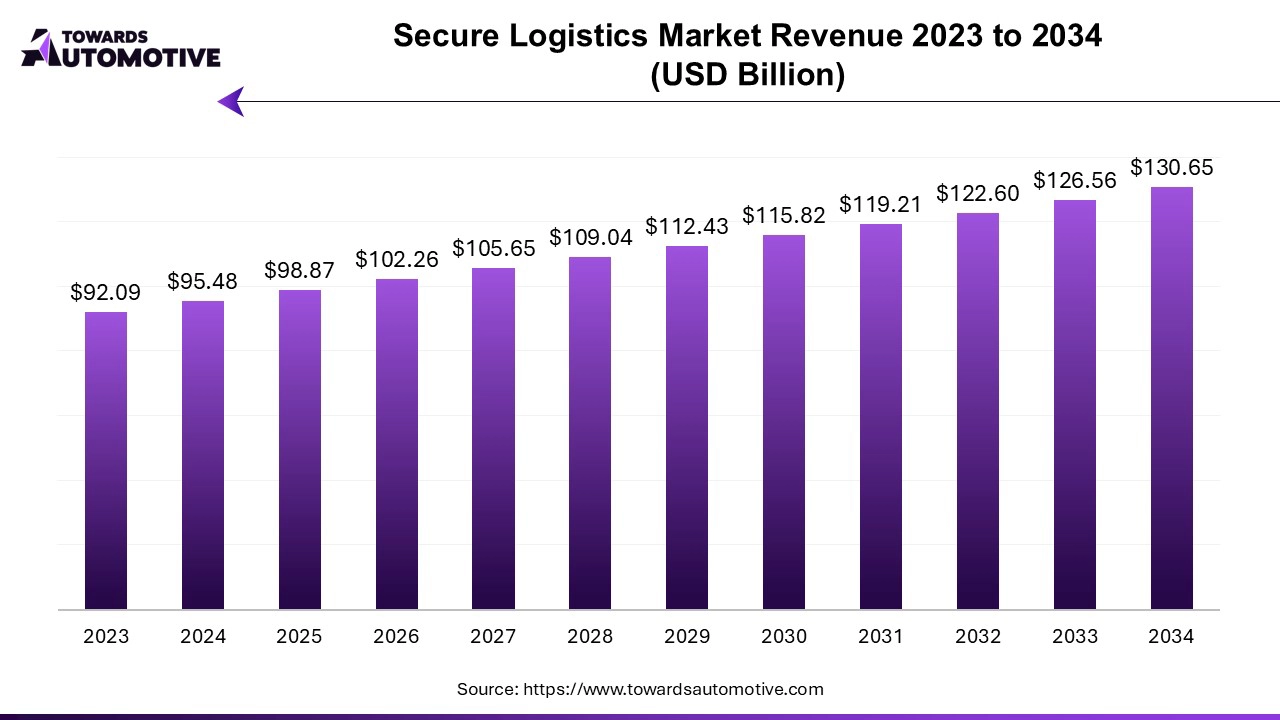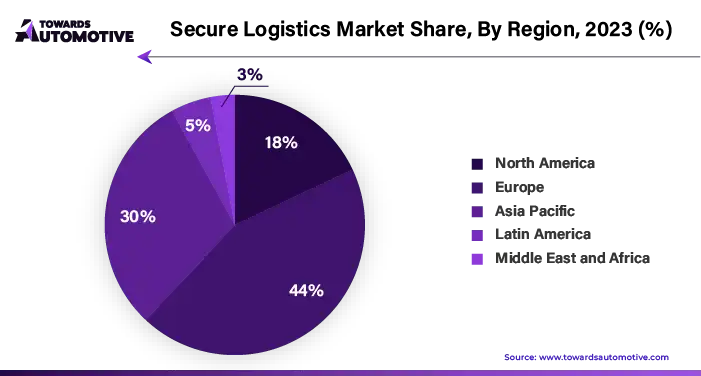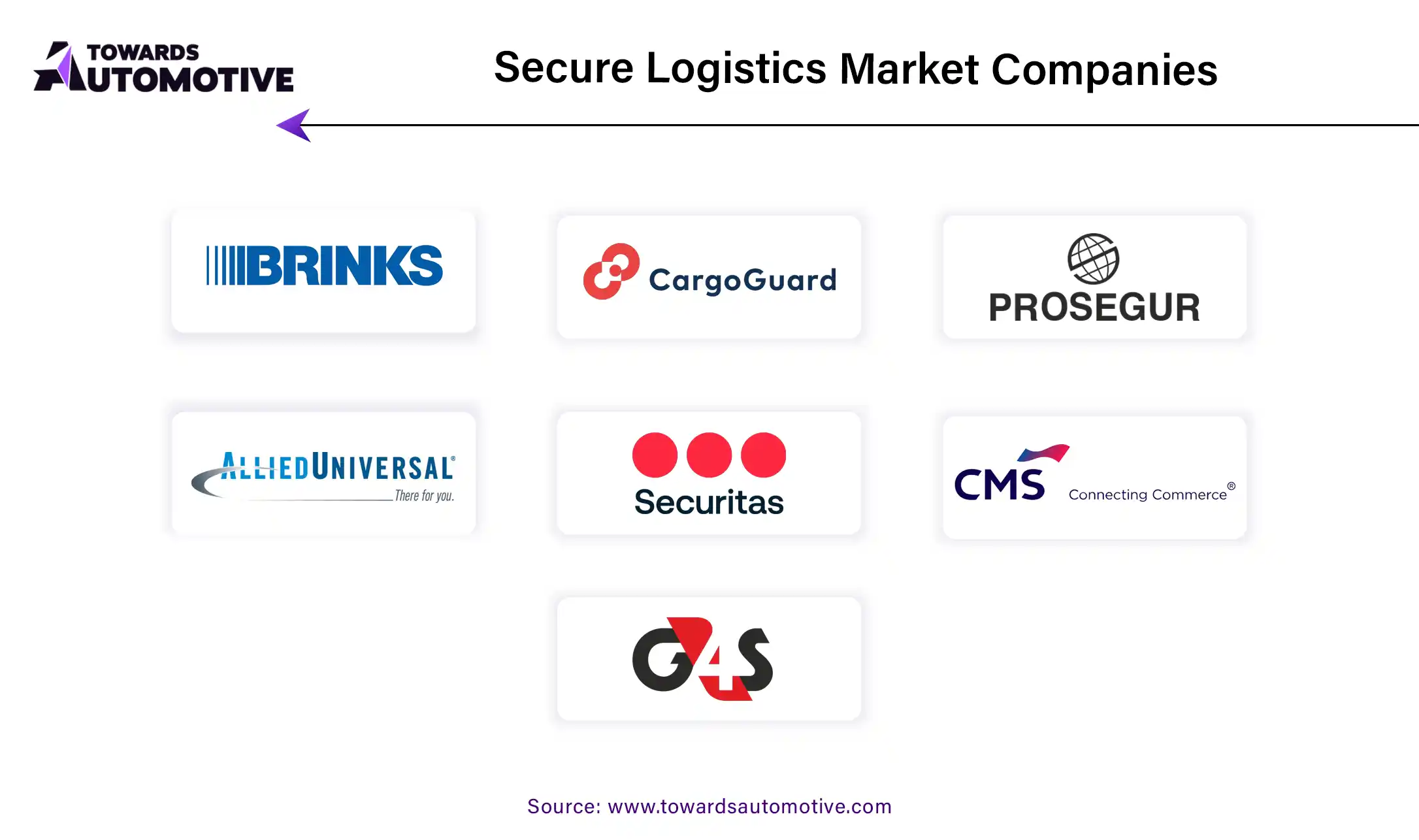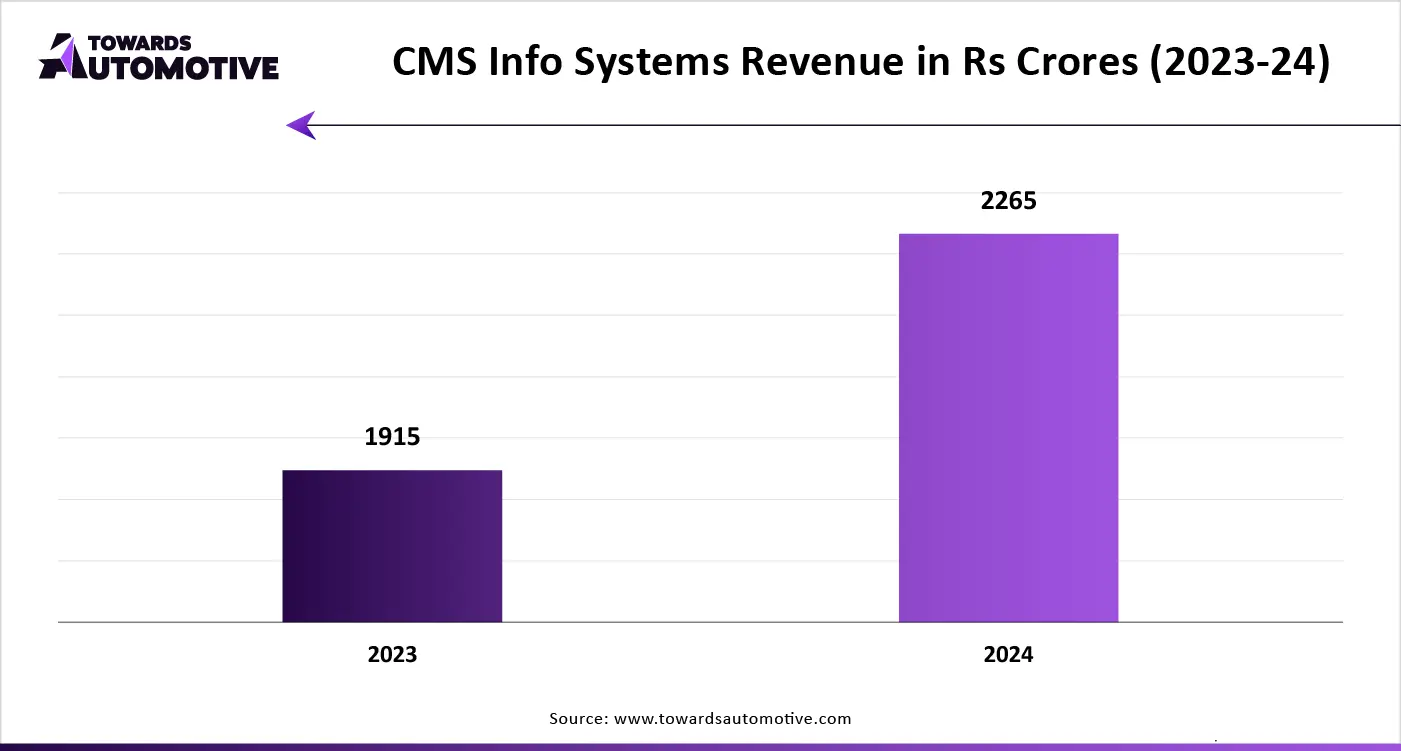September 2025
The secure logistics market is forecasted to expand from USD 98.87 billion in 2025 to USD 130.65 billion by 2034, growing at a CAGR of 3.23% from 2025 to 2034.

Unlock Infinite Advantages: Subscribe to Annual Membership
The secure logistics market is a prominent segment of the logistics industry. This industry deals in providing advanced logistics services to transport costly goods around the world. There are various types of services delivered by this sector consisting of static and mobile. These logistics services find applications in numerous end-user sectors including financial institutions, retailers, government and some others. It is carried out by different mode of transportation such as road, rail and air. The end-users of this industry consist of financial institutions, retailers, government and some others. This market is expected to rise significantly with the growth of the BFSI sector in different parts of the globe.
The major trends in this market consists of integration of AI in logistics sector, proliferation of international logistics services and rapid developments in the BFSI sector.
The market players are integrating AI-based solutions in their operations for enhancing the capabilities of the logistics sector. For instance, in February 2025, Pando launched an AI platform for the logistics sector. This platform is designed for enhancing several operations such as dispatch planning, automating freight procurement, freight audit and payment processes and some others. (Source: Pando's AI)
Numerous secure logistics companies have started launching services to transport jewelry items internationally. For instance, in May 2025, BVC announced that the Precious Cargo Customs Clearance Centre (PCCCC) approved its international logistics service. Through this service, the people of India can import and export jewelry products in a global scale. (Source: Diamondworld)
The BFSI sector is experiencing immense growth due to rise in number of private banks along with technological advancements related to this field. For instance, in November 2024, Barclays announced to open a new private bank in Singapore in 2026. This bank is expected to cater the needs of the ultra-wealthy clients of Singapore. (Source: Reuters)
The road segment led this industry. The growing demand for road-based secure logistics services to cater the needs of the banking sector has boosted the market expansion. Moreover, the rising adoption of these logistics services to deliver essential goods inside any country is expected to foster the growth of the secure logistics market.
The air segment is expected to grow with a notable CAGR during the forecast period. The growing adoption of air-based secure logistics service to transport costly jewelry items in different parts of the world has boosted the market growth. Additionally, partnerships and collaborations among market players to launch new services to cater the needs of the government sector is expected to drive the growth of the secure logistics market.
The cash management segment led the industry. The rise in number of private banks in several countries such as India, Switzerland, Sweden, Canada and some others has boosted the market growth. Additionally, the growing adoption of advanced logistics services to transport cash from bank headquarters to different branches is expected to propel the growth of the secure logistics market.
The diamonds, jewelry & precious metals segment is expected to rise with a considerable CAGR during the forecast period. The growing demand for jewelry ornaments among women to enhance beauty has enabled logistics companies to launch new services to transport these costly items securely, thereby driving the market growth. Also, partnerships and collaborations among diamond companies and logistics providers to enhance supply chain operations is further driving the growth of the secure logistics market.
The financial institutions dominated the market. The growing adoption of secure logistics to transport physical currency in different parts of the world has driven the market growth. Additionally, various market players are launching several logistics services to cater the needs of the ATMs is further boosting the growth of the secure logistics market.
The retail sector is expected to grow with the highest CAGR during the forecast period. The rising adoption of secure logistics services to transport costly items in different parts of the globe has boosted the market expansion. Also, rapid investment by market players to launch new logistics services to cater the needs of the retail sector is driving the growth of the secure logistics market.

North America held the largest share of the secure logistics market. The growing development in the logistics sector due to integration of advanced technologies such as AI and IoT has boosted the market growth. Additionally, the rising interest of women to adopt latest jewelry items coupled with rapid expansion of the BFSI sector is adding to the overall industrial expansion. Moreover, the presence of several market players such as Allied Universal, Garda World, PlanITROI, Inc. and some others is expected to drive the growth of the secure logistics market in this region.
U.S. dominated the market in this region. In the U.S., the market is generally driven by the rising adoption of green logistics coupled with integration of automated solutions in the logistics sector. Additionally, the growing consumer preference to purchase diamond jewelries along with rapid investment by government for developing the road infrastructure is contributing to the overall industrial expansion.
Asia Pacific is expected to rise with the fastest CAGR during the forecast period. The growing demand for gold ornaments and platinum jewelries in several countries such as India, China, Japan, Singapore and some others has driven the market expansion. Also, rise in number of private banks coupled with technological advancements in the secure logistics sector is contributing to the overall industrial growth. Moreover, the presence of numerous secure logistics companies such as BVC logistics, Shiprocket, CMS Info Systems is expected to propel the growth of the secure logistics market in this region.
India and China contribute significantly in this region. In India, the market is generally driven by the rising demand for gold and silver jewelries along with rise in number of small NBFCs. In China, the growth of the market is attributed to the rapid adoption of eco-friendly logistics services coupled with rapid developments in the diamond jewelry industry.

The secure logistics market is a highly competitive industry with the presence of numerous dominating players. Some of the prominent companies in this industry consists of Logicall, CMS Info Systems (CMS); G4S plc; Loomis AB; GardaWorld; Lemuir Group; Brink’s Inc.; CargoGuard; Maltacourt; PlanITROI, Inc.; Prosegur; Allied Universal; and some others. These companies are constantly engaged in providing secured logistics services and adopting numerous strategies such as launches, partnerships, acquisitions, joint ventures, business expansions, collaborations, and some others to maintain their dominance in this industry.

By Application
By Mode of Transport
By End-User
By Type
By Region
September 2025
June 2025
June 2025
April 2025
We offer automotive expertise for market projections and customizable research, adaptable to diverse strategic approaches.
Contact Us